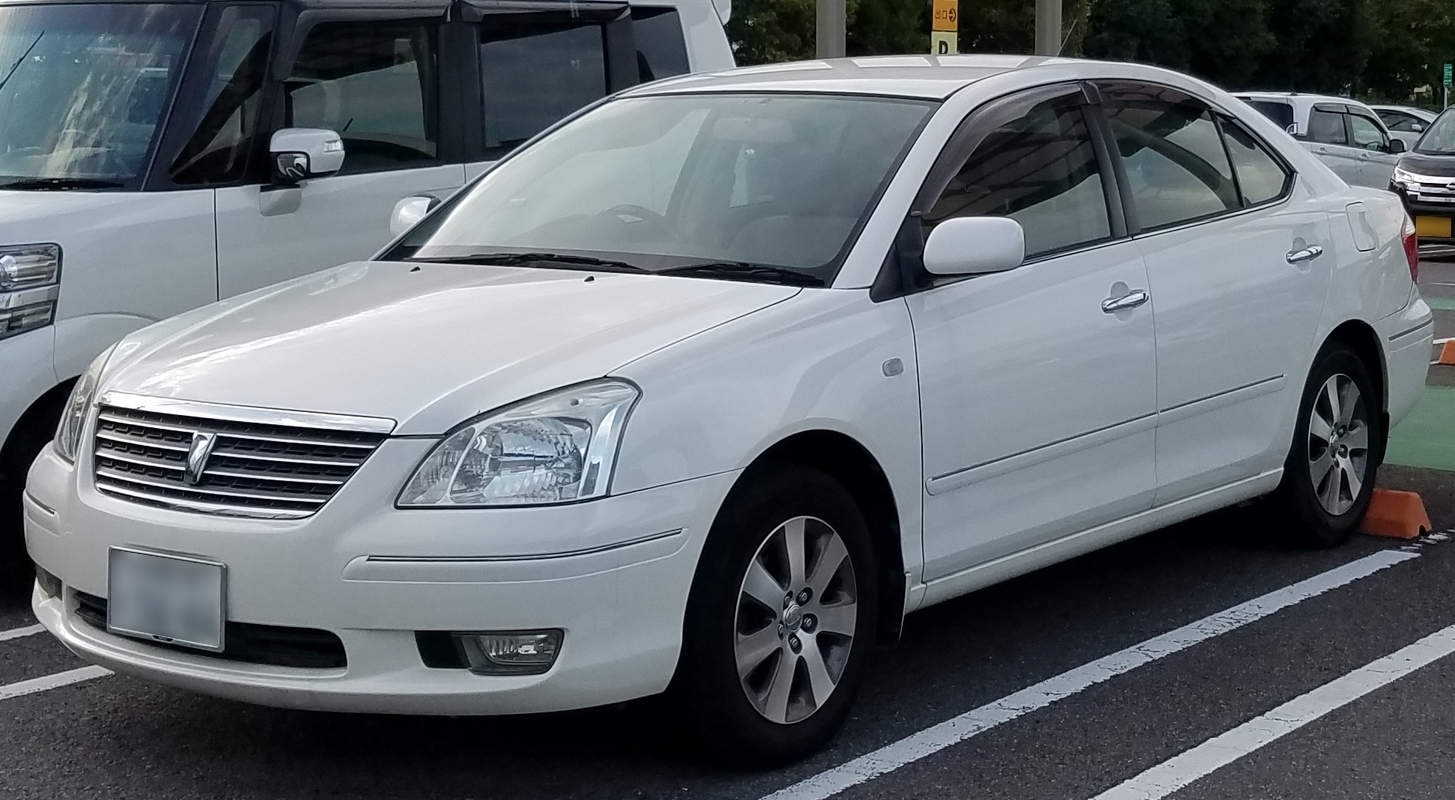
By Toyotacoronaexsaloon - Own work, CC BY-SA 4.0, https://commons.wikimedia.org/w/index.php?curid=87238846
History of the Toyota Allion
The Toyota Allion is a compact sedan introduced in 2001, primarily designed for the Japanese domestic market (JDM). The Allion replaced the Toyota Carina and was sold alongside the Toyota Premio, both positioned slightly above the Toyota Corolla in terms of refinement and features. The Allion was aimed at buyers seeking a balance of style, comfort, and efficiency, offering a practical yet premium driving experience.
The name “Allion” derives from “all-in-one,” reflecting the car’s versatility and comprehensive feature set. Over its production run, the Toyota Allion became well-regarded for its reliability, fuel efficiency, and value, making it a popular choice in the used car market, especially in regions where Japanese imports are favored.
Design and Features
Exterior
The Toyota Allion’s exterior combines elegance and simplicity. Its aerodynamic profile and sleek design appeal to buyers seeking a modern sedan with understated luxury. The front fascia features a chrome-accented grille and angular headlights that complement the smooth lines of the body. Over the years, minor design updates included refreshed fascias and headlight configurations, but the Allion maintained its classic, conservative appearance.
Interior
Inside, the Allion focuses on comfort and practicality. The cabin is spacious for a compact sedan, providing ample legroom and headroom for both front and rear passengers. The materials used are durable, and higher trims offer wood-grain accents and leather upholstery for a more premium feel. The dashboard layout is intuitive, with easy-to-use controls and clear instrumentation.
Standard features include air conditioning, power windows, and a basic audio system, while higher trims offer a touchscreen infotainment system, automatic climate control, and multifunction steering. The rear seats fold down to increase trunk space, adding versatility to its practicality.
Off-Road Capabilities
The Toyota Allion is primarily designed for city and highway driving, not for off-road use. Its front-wheel-drive configuration, combined with a suspension optimized for smooth, paved roads, makes it ideal for urban environments but unsuitable for rough terrains.
Engine and Performance
The Toyota Allion has been equipped with several engine options, prioritizing fuel efficiency and reliable performance. These include:
- 1.5-liter 1NZ-FE inline-4: Offering around 109 horsepower, this engine is ideal for city driving, focusing on fuel economy.
- 1.8-liter 1ZZ-FE inline-4: Producing approximately 132 horsepower, it provides a balance between power and efficiency, suitable for both urban and highway use.
- 2.0-liter 1AZ-FSE inline-4: With about 152 horsepower and Toyota’s D-4 direct injection technology, this engine delivers enhanced performance for longer trips and highway driving.
The transmission options include a 4-speed automatic or a continuously variable transmission (CVT), depending on the engine. The CVT enhances fuel efficiency and offers smoother acceleration, while the automatic transmission delivers a more traditional driving experience.
The Allion’s suspension is tuned for comfort, focusing on a smooth ride rather than sporty handling. Its light steering and responsive nature make it easy to maneuver in city environments, while still providing adequate performance for everyday driving.
Trim Levels
The Toyota Allion has been offered in various trims, catering to a wide range of preferences:
- Base Trim: Includes essential features like manual air conditioning and power windows.
- Mid-Level Trim: Adds conveniences such as automatic climate control, upgraded interior materials, and keyless entry.
- High-End Trim: Offers luxury features like leather seats, a touchscreen infotainment system, alloy wheels, and enhanced safety features such as parking sensors and a rearview camera.
Special editions with sportier body kits and alloy wheels were also available, allowing buyers to customize the vehicle according to their tastes.
Sales and Popularity
The Allion enjoyed steady sales within Japan, valued for its dependability, comfort, and sleek design. Outside of Japan, the car gained popularity in countries like Kenya, Sri Lanka, and Bangladesh, where Japanese imports are common. Its reputation for reliability and fuel efficiency made it a favored choice, especially in the used car market.
Awards and Recognition
Though the Toyota Allion did not win major international awards, it was well-regarded in its home market for its dependability and practicality. Its connection to Toyota’s legacy of building long-lasting, reliable cars earned it a loyal customer base over the years.
Used Toyota Allion
Reliability
The Toyota Allion is known for its outstanding reliability, a key factor contributing to its popularity in the used car market. The 1NZ-FE and 1ZZ-FE engines are particularly praised for their durability and ease of maintenance. However, like any vehicle, wear and tear on brakes, suspension components, and CVT transmissions may require attention in older models.
Routine maintenance is crucial for keeping the Allion in good condition, with regular oil changes, brake checks, and timing belt replacements being essential for longevity. Despite these maintenance needs, the Allion’s reliability remains one of its strongest selling points.
Resale Value
The Allion holds its value well in the used car market, especially in regions where Japanese imports are in demand. Its reputation for reliability and low running costs helps it retain strong resale value, making it a smart choice for budget-conscious buyers.
Key Factors for Used Buyers
Prospective used Toyota Allion buyers should consider the following:
- Service History: Ensure regular maintenance has been performed, particularly on the engine and transmission.
- Mileage: Higher mileage cars can still be reliable but may need attention to components like the suspension and brakes.
- CVT Condition: Verify that the CVT transmission is in good working order, as older models may require servicing.
- Rust: Check for rust, particularly on older models that may have been exposed to harsh climates.
Conclusion
The Toyota Allion is a well-rounded compact sedan known for its reliability, fuel efficiency, and comfortable design. It has remained a popular choice for both new and used car buyers, particularly in markets where Japanese imports are valued. With its solid reputation, the Allion offers long-term value and dependable performance, making it an appealing option for drivers seeking a practical yet refined sedan.

